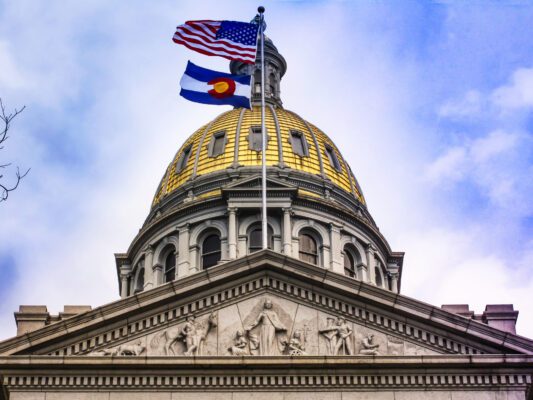When facing doubts and fears, the last thing you want to do is isolate yourself and struggle alone. Sometimes we do that because we don’t think others will understand. Or maybe we feel embarrassed that we are questioning our beliefs. But we have to be honest about our struggles and bring them into the light. This is why your involvement in Christian fellowship on campus is so important.
You need a deep, strong group of believers on campus who can support you when you walk through tough times. Lean on them. Let them speak truth to you. Let them encourage you to persevere. That’s what the body of Christ is for: “Two are better than one, because they have a good reward for their toil. For if they fall, one will lift up his fellow. But woe to him who is alone when he falls and has not another to lift him up!” (Eccles. 4:9–10).
Study your faith deeply
I know that the last thing you want to hear right now is that you need to do more study. You probably think you have enough coursework to occupy your time! But the study I am talking about is even more important. If we are going to battle our doubts, we have to be committed to studying God’s word. And I don’t mean just studying passages of Scripture (as important as that is), but I mean diving deeply into the entire Christian worldview so that we understand not only what we believe but why we believe it.
If you think about what causes your doubts, you will realize that each of those causes can be addressed (at least in part) through deep study. If a person has intellectual doubts, studying the evidences and reasons for the faith can help quell her concerns. If a person has lost his way morally, the word of God can be a reminder of the importance of obedience and how God empowers us to follow him. If a person has dealt with great suffering, a deeper understanding of the nature of God—his goodness, his sovereignty, his purposes for evil—can provide great comfort and perspective. And even if a person is a chronic worrier, the Scriptures speak to that too. The psalmist shows us how to trust God with our fears:
Because you have made the Lord your dwelling place . . . no evil shall be allowed to befall you, no plague come near your tent. (Ps. 91:9–10)
Here’s the point: good theology matters. A believer with a solid theological foundation is able to handle these difficult questions better than a person who has a shallow understanding of the Christian faith. And good theology is not automatic. One must study diligently to attain it.
Get wise counsel
Even if you have solid fellowship, and you are committed to deep study of God’s word, you still need to lean on Christians who are wiser, older, and more mature. After all, you are not the first Christian in the history of the church to wrestle with these things. Many have gone before you, and you need to learn from them.
Who can provide this wise counsel? Well, one obvious answer is a pastor at your church. Pastors are trained to handle such difficult questions and are therefore a great resource for finding help. Again, this is why being part of a good church is so important. You can also get wise input from a biblical counselor, someone trained to help apply God’s word to the issues and problems we all struggle with. And of course, you can look to a mentor, perhaps an older believer who has invested in you and is looking out for you.
Doubt your doubts
When we doubt some truth of Christianity, we often don’t realize that we are doubting that truth because of some other belief we hold. In effect, then, we are swapping out one belief for another. If so, then when we find ourselves doubting one of our Christian beliefs, we can fight back by challenging the belief that replaces it. Timothy Keller provides a helpful example.1Timothy Keller, Making Sense of God: Finding God in the Modern World (New York: Penguin, 2018), 39. Imagine you meet an atheist who turns out to be kind, happy, and moral, and this makes you doubt whether Christianity is really true. A little reflection will reveal that there is another belief that is feeding this doubt, namely, the belief that atheists ought to be bad, awful people. And since they’re not bad, awful people, then you doubt your faith.
But it is precisely this belief, argues Keller, that you should challenge. Why should we think that atheists must be awful people? It turns out that such a belief is highly problematic. The Scriptures teach that even non-Christians can be outwardly kind and good by virtue of being made in the image of God. Moreover, the Scriptures also teach that believers are often serious sinners because we are saved not by works but by grace. So this alternative belief falls apart upon closer scrutiny. This is what it looks like to doubt your doubts. Fight against the belief that is trying to replace your Christian belief.
Grow from your doubts
While our doubts can seem like they’re destroying us, don’t forget that God may have other purposes for them. As strange as it sounds, there’s a certain spiritual depth, and a certain spiritual strength, that we will never reach without going through an intense season of doubting and struggling. When we push through such a season, we can find ourselves all the stronger on the other side of it. Indeed, some of the great saints of old have had to endure such trials so that they may prove more faithful in the end. Even Jesus himself endured a “dark night of the soul.” In the garden of Gethsemane, he suffered greatly under the prospect of what lay before him, in anguish even to the point of death (Matt. 26:38).
Of course, in the middle of such doubts, it is not always easy to see what God’s ultimate purpose might be. Sometimes we cannot see it until it’s all over and we look back. It’s worth noting that it was when Martin Luther was in his darkest season of doubting that he wrote his most famous hymn, “A Mighty Fortress Is Our God.” And that hymn, born out of a period of doubt and darkness, has strengthened millions of believers since.
This article was originally published by Crossway.










